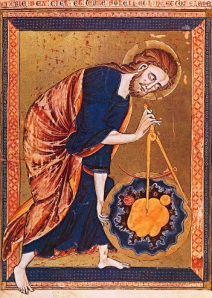
Freemasonry is the world’s oldest, widest spread and most imitated secular fraternal society.
The following information is intended to explain Freemasonry as it is practised under the United Grand Lodge of England, which administers Lodges of Freemasons in England and Wales and in many places overseas. This information may correct some misconceptions.
Freemasonry is a society of men concerned with moral and spiritual values. Its members are taught its precepts by a series of ritual dramas, which follow ancient forms, and use stonemasons’ customs and tools as allegorical guides.
The essential qualification for admission into and continuing membership is a belief in the Supreme Being. Membership is open to men of any race or religion who can fulfil this essential qualification and who are of good repute.
Freemasonry and Religion
Freemasonry is not a religion, nor is it a substitute for religion. Its essential qualification opens it to men of many religions and it expects them to continue to follow their own faith. It does not allow religion to be discussed at its meetings.
The Three Great Principles
For many years Freemasons have followed three great principles:
Brotherly Love – Every true Freemason will show tolerance and respect for the opinions of others and behave with kindness and understanding to his fellow creatures.
Relief – Freemasons are taught to practise charity and to care, not only for their own, but also for the community as a whole, both by charitable giving, and by voluntary efforts and works as individuals.
Truth – Freemasons strive for truth, requiring high moral standards and aiming to achieve them in their own lives.
Freemasons believe that these principles represent a way of achieving higher standards in life.
Charity
From its earliest days, Freemasonry has been concerned with the care of orphans, the sick and the aged. This work continues today. In addition, large sums are given to national and local charities working in these areas.
Freemasonry and Society
Freemasonry demands from its members a respect for the law of the country in which a man works and lives. Its principles do not in any way conflict with its members’ duties as citizens, but should strengthen them in fulfilling their public and private responsibilities. The use by a Freemason of his membership to promote his own or anyone else’s business, professional or personal interests is condemned, and is contrary to the conditions on which he sought admission to Freemasonry. His duty as a citizen must always prevail over any obligation to other Freemasons, and any attempt to shield a Freemason who as acted dishonourably or unlawfully is contrary to this prime duty.
Secrecy
The secrets of Freemasonry are concerned with its traditional modes of recognition. It is not a secret society, since all members are free to acknowledge their membership and will do so in response to enquiries for respectable reasons. Its constitutions and rules are available to the public. There is no secret about any of its aims and principles. Like many other societies, it regards some of its internal affairs as private matters for its members.
Freemasonry and Politics
Freemasonry is non-political, and the discussion of politics at Masonic meetings is forbidden.
Other Masonic Bodies
Freemasonry is practised under many independent Grand Lodges with standards similar to those set by the United Grand Lodge of England. There are some Grand Lodges and other apparently Masonic bodies that do not meet these standards, e.g. that do not require a belief in a Supreme Being, or that allow or encourage their members as such to participate in political matters. These Grand Lodges and bodies are not recognised by the United Grand Lodge of England as being Masonically regular, and Masonic contact with them is forbidden.
Conclusion
A Freemason is encouraged to do his duty first to his God (by whatever name he is known) through his faith and religious practice; and then, without detriment to his family and those dependent on him, to his neighbour through charity and service. None of these ideas is exclusively Masonic, but all should be universally acceptable. Freemasons are expected to follow them.
Who Can become a Freemason?
Our fraternity has a wonderful history, which dates back more than three centuries. It is one of the world’s oldest secular fraternities, a society of men concerned with moral and spiritual values. Founded on the three great principles of Brotherly Love, Relief and Truth, it aims to bring together men of goodwill, regardless of background and differences. People might think that to become a Freemason is quite difficult. It’s actually straightforward. The essential qualifications for admission is that you have a belief in the Supreme Being. Candidates must be, at least, of the full and legal “Age of Majority” in the UK this is currently 18 years of age, there is no maximum age.
Interested in Becoming a Freemason?
If your interest has been piqued by this and other websites and you are considering becoming a Freemason, please drop our Webmaster an email and he will try to connect you with someone who can assist you.